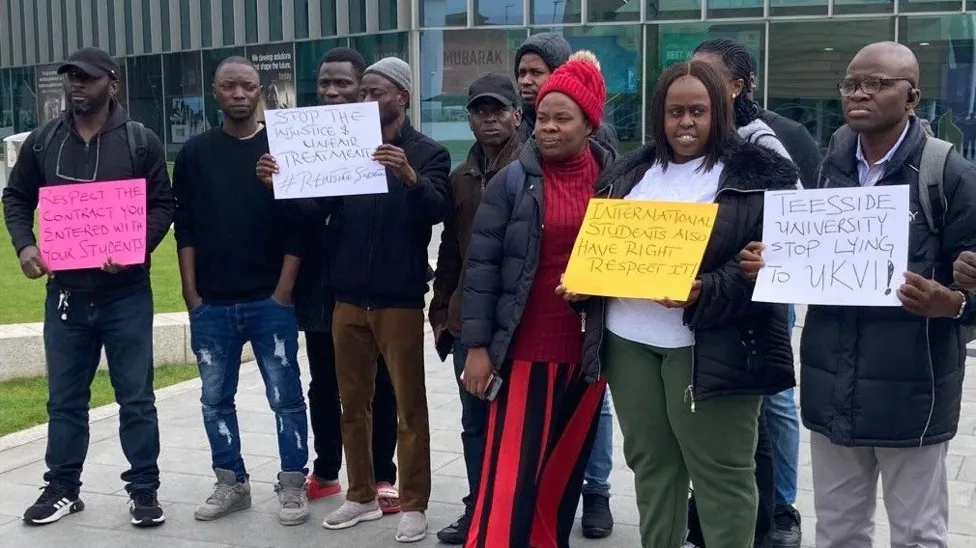Food that can help with your blood sugar, during Ramadan
February 20, 2026PAG Felicitates Muslims on Commencement of Ramadan Fast
February 18, 2026UK Varsity Invalidates Nigerian Students’ Visas Over Unpaid Fees
UK Varsity Invalidates Nigerian Students’ Visas Over Unpaid Fees

Nigerian students at Teesside University in the United Kingdom have been instructed to leave the school and return to Nigeria due to unpaid tuition fees.
The devaluation of the naira has made it difficult for these students to meet their financial obligations, resulting in a breach of visa sponsorship requirements.
Consequently, some students have been blocked from their studies, reported to the Home Office, and ordered to leave the UK.
The university claims that it has no alternative but to enforce these measures, citing strict external regulations.
Affected students have expressed their distress and disappointment, criticising the university for being “heartless” and not offering adequate support.
A group of 60 students who chose to share their names with the BBC have united to urge the university to provide support after several of their peers faced severe consequences for defaulting on payments.
These students were abruptly locked out of their university accounts and withdrawn from their courses.
Adenike Ibrahim, a student close to graduating, had her visa revoked despite having paid 90% of her tuition fees.
“I did default [on payments], but I’d already paid 90% of my tuition fees, and I went to all of my classes,” she told the BBC.
She added that she had tried to reach an agreement with the university but received no assistance.
Another affected student, Esther Obigwe, has been struggling with depression due to the situation. She claims she repeatedly tried to communicate her financial difficulties to the university but received no response until she was blocked from her studies and ordered to leave the country.
“I attended all of my classes and seminars; I’m a hell of an active student,” Obigwe said. “It is disheartening; I am now on antidepressants, and being here alone, I have nobody to talk to.”
Jude Salubi, a student pursuing a degree in social work, was informed that his access to the university would be suspended and that he would need to leave the country, despite being in the middle of a critical placement.
Salubi, who commutes from Teesside to Liverpool every weekend and works 18 hours to try to settle his outstanding fees, said, “As of now, I have paid £14,000 and have a balance of £14,000.
“I am willing to come to an agreement as to how I will make this payment, but I need guarantees that I will be re-enrolled in school and my visa restored.”
A university spokesman stated, “Teesside University is proud to be a global institution with a diverse student population but is also very aware of its obligations regarding visa issuance and compliance. These strict external regulations ensure that the university fully supports a robust immigration system that is outside of the university’s control.”
The spokesman acknowledged the financial struggles faced by some students and mentioned that the university has proactively offered customised payment plans to those who have requested them.
“This option has been taken up by many of our international students; however, some students have still defaulted on these revised payment plans,” he said.
The Home Office clarified that the decision to grant or withdraw visa sponsorship lies with the sponsoring institution. In cases where a visa is shortened or cancelled, individuals are advised to either regularise their stay or make arrangements to depart the UK.
Teesside University emphasised that the move was in line with the UK’s immigration regulations and reiterated its commitment to supporting a robust immigration system.
END.








